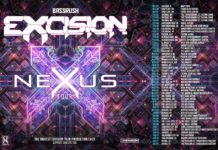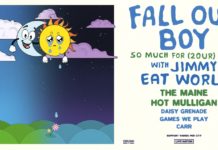Writer’s block is an enormous problem that every writer has to deal with. Even the most renowned authors will tell you that they’re not immune to this age-old problem. Despite their creativity and writing prowess, they also struggle with this problem at some point. Now imagine what it can do to a student.
Writer’s block can inhibit the flow of ideas and make student’s well run dry. Even after putting efforts to rack their mind for ideas, it just remains blank.
This is an extremely strong force that prevents most students from completing assignments. While postponing work is an option for students, there’s always a better way to handle writer’s block.
Students can use music to spark creativity and enhance the flow of ideas. Music helps to stimulate the brain naturally. It inspires you to write and floods you with ideas.
But what is the best way for students to effectively use music to spark creativity? This guide highlights how students can use music to overcome writer’s block.
Establish Your Writing Goals
To get the right inspiration for your writing, you must first identify your writing goals. By writing down what you hope to communicate with your audience, you will be able to select music that will spark the right emotions.
Some questions to ask that will determine what music to play include:
- What is my theme? Am I writing about politics, is it a story about natural calamity, or am I discussing religion?
- What emotions do I intend to evoke with my writing?
- What tone do I intend to adopt? Is it friendly, serious, or abstract?
The answers to these questions should enable you to select the best music to incorporate in your writing process to trigger the flow of ideas.
Go for Music that Complements Your Writing Goals
Music creates the right mood for your writing. Stirring the right emotions should get students closer to achieving their writing goals. It’s, therefore, important to select a playlist that is related to the topic of choice.
So how do you choose the right music? Your writing goals should inform your selection of music. Make sure you choose music that complements your goals in order to evoke the right type of emotions.
If you’re working on custom writing about natural calamities, listen to music with lyrics that are ideal for emotional topics. Music from artists like Adele should inspire you to write on emotional topics.
On the other hand, if you decide to write on positive topics, consider listening to songs composed by Beyoncé, Ed Sheeran, among other similar artists. These artists are known for creating music that develops positive feelings in listeners.
While the suggestions above work for most students, not everyone has the same taste for music. Music is personal. So choose songs that will help you trigger the most creativity.
Listen Before You Start Writing
Once you’ve selected your songs, take enough time to listen to them. Listening to the lyrics and understanding them will put you in the songwriter’s mind. You’ll get insights into what the artist intended to pass across through their art.
Meanwhile, you can close your eyes and reflect on your content. In addition to getting more ideas for your content, listening to music will help to spark emotions and get you in the mood to write.
As you listen to music, have a place where you can jot down any ideas that come to mind. 10-15 minutes should be enough to absorb the music and get a few ideas that will help you write a better essay. You’ll be surprised your essay might take a different angle than you anticipated.
Start Writing
When you start writing, music can help you focus. This can happen in two ways. First, you may have too many ideas in your head, which can easily make you distracted. Listening to music can assist you to control the flow ideas and get rid of any distractions.
Second, when writing in a silent room, don’t you ever feel the silence being extremely loud? For most students, it does. The best way to deal with it is to have some smooth music in the background.
Better still, you could listen to some instrumentals to increase your concentration span. Make sure the volume is low to medium because blasting music can reduce concentration.
Indeed arts feed each other, especially in this case where music can inspire students’ writing. Most times, students listen to music while on a morning run or when taking a bus home only to discover a writing idea buried within the song’s lyrics.
And it’s not that alone. The mood the music sets can inspire students to write even when experiencing writer’s block. So make music part of your writing, and you will have a story to tell!






